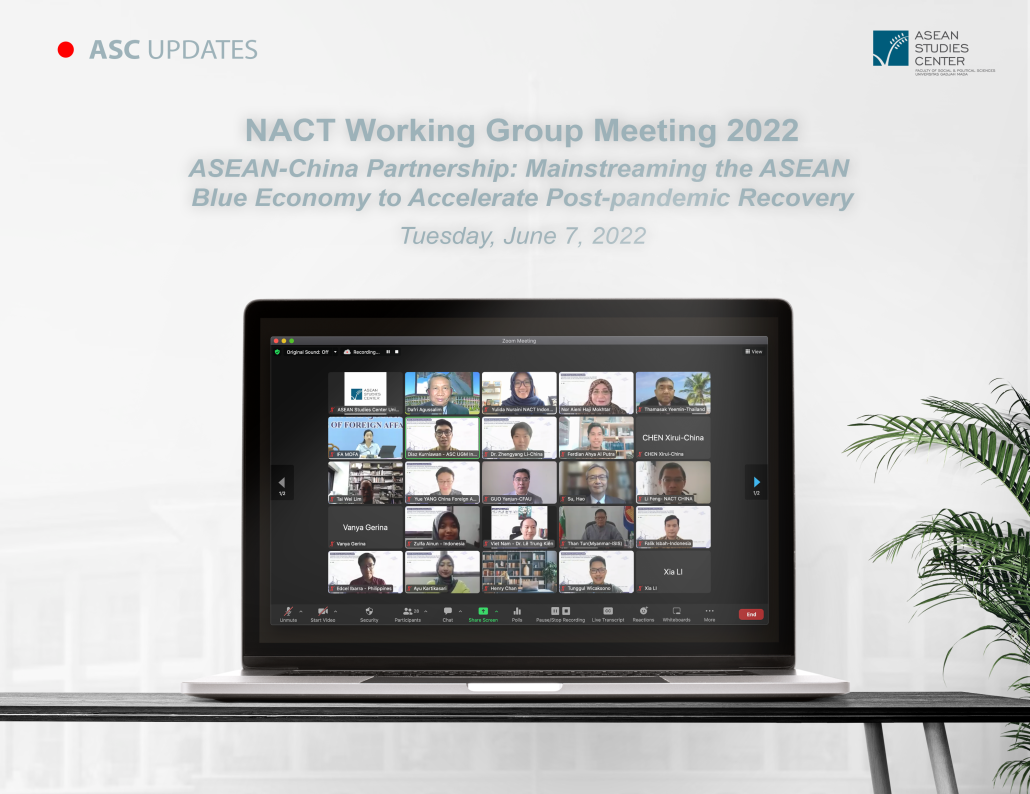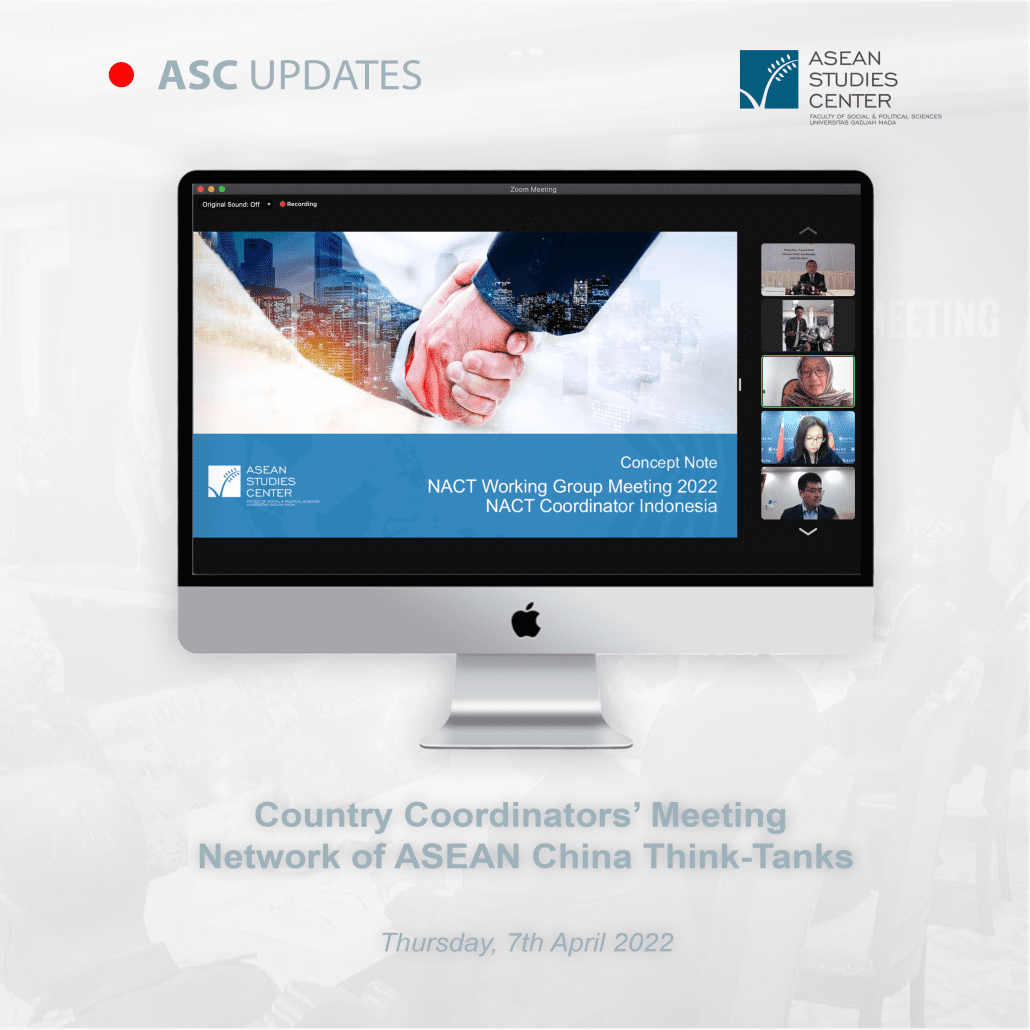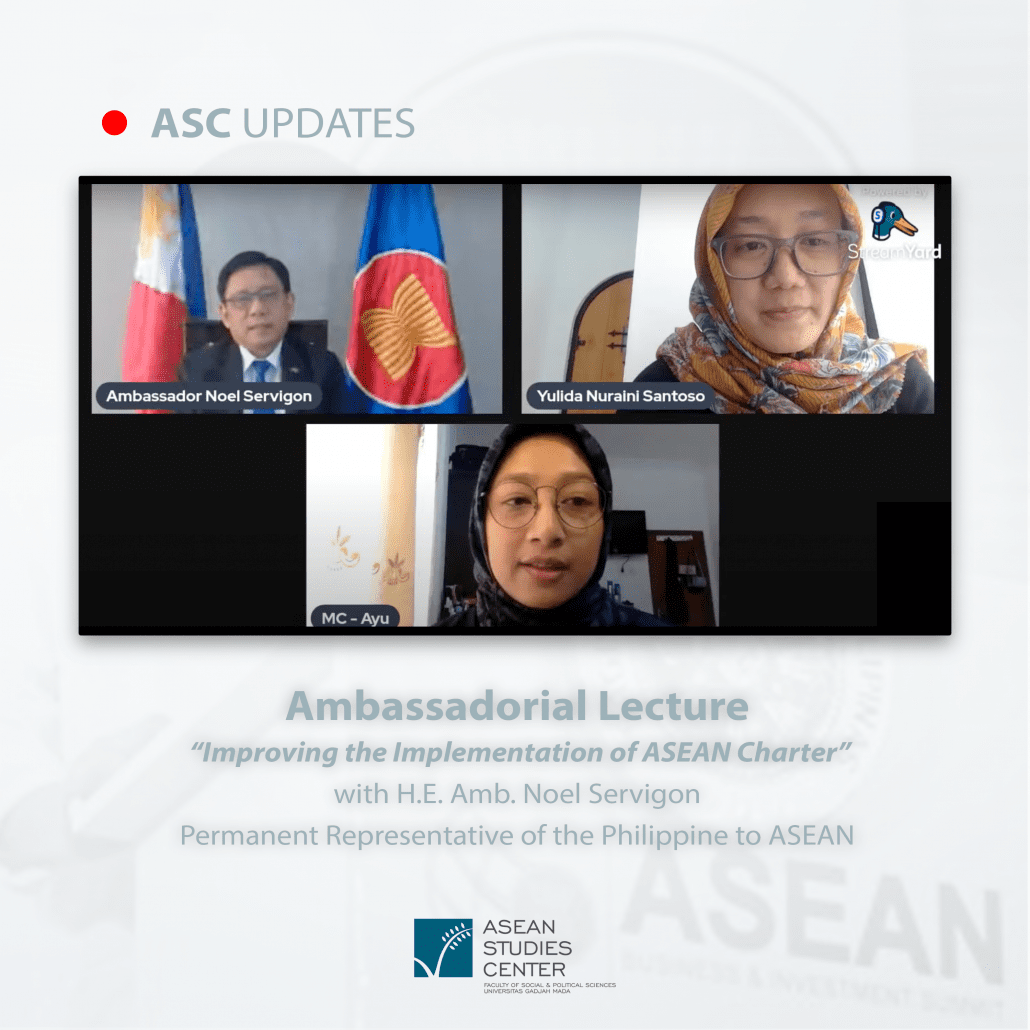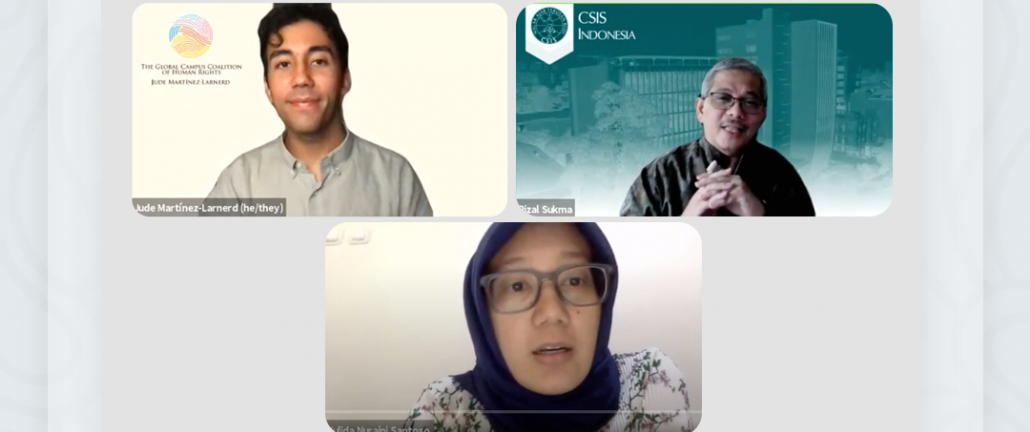Public Seminar – Indonesia’s Agenda in ASEAN Chairmanship 2023: Opportunities and Challenges

Indonesia’s Chairmanship role in the midst of the dynamics of global issues that are always challenging at this time is driven by strong initiatives to build a regional region that has a stable, fast-growing, inclusive, and sustainable economy. Indonesia’s chairmanship of ASEAN in 2023 is an important momentum that needs to be utilized to create […]
Institutional Visitation by H.E. Deng Xijun – Ambassador of Chinese Mission to ASEAN

The Chinese Mission’s Ambassador to ASEAN, H.E. Deng Xijun, and colleagues paid a visit to the ASEAN Studies Center and the Faculty of Social and Political Sciences of Universitas Gadjah Mada on Friday, November 18, 2022. This visit is intended to keep the Center and Chinese Mission to ASEAN engaged and working together, which has […]
Welcoming our new partner, Korean Institute for ASEAN Studies – Busan University of Foreign Affairs

Republic of Korea is one of ASEAN’s earliest dialogue partners, having agreed in November 1989 to establish sectoral dialogue relations. ASEAN granted the ROK full Dialogue Partner status at the 24th ASEAN Ministerial Meeting (AMM) in Kuala Lumpur in July 1991. In 1997, the partnership was elevated to the Summit level in Kuala Lumpur. As […]
NACT Working Group Meeting 2022 | ASEAN-China Partnership: Mainstreaming the ASEAN Blue Economy to Accelerate Post-pandemic Recovery

In light of the difficulties in setting up a strong and fair legal framework, ocean exploitation is likely inevitable. ASEAN and China must build on the platform’s long-term potential and unlock the platform’s capabilities that are still underdeveloped for regions that rely heavily on the marine ecosystem. The partnership between the two parties was established […]
Country Coordinator’s Meeting Network of ASEAN-China Think Tanks 2022

On Thursday, 7 April 2022 ASEAN Studies Center Universitas Gadjah joined to Network of ASEAN China Think-Tanks Country Coordinators’ Meeting through online platform. This Meeting was held annually with the purpose to discuss the general theme, sustainable development, and working group proposals for the upcoming NACT Working Group meetings. The co-host for these meetings was […]
Ambassadorial Lecture “Improving the Implementation of ASEAN Charter” with H.E. Amb. Noel Servigon

This year remarks the 15 years of implementation of the ASEAN Charter that was adopted at the 13th ASEAN Summit in November 2007. In fact, the draft of the ASEAN Charter as the constituent instrument of the association had been formally proposed in 2005 at the 11th ASEAN Summit in Kuala Lumpur, Malaysia. Until now, […]
The 38th and 39th ASEAN Summits | “We Care, We Prepare, We Prosper”

The 38th and 39th ASEAN Summits were held on 26th – 28th October 2021, under the chairmanship of Brunei Darussalam. The Summits were chaired by Sultan and Yang Di-Pertuan of Brunei Darussalam, His Majesty Sultan Haji Hassanal Bolkiah. The summits raised the theme of “We Care, We Prepare, We Prosper” in accordance to the theme […]
Public Lecture on ASEAN Women and Children Protection through Civil Society and Academic Participation

The ASEAN Studies Center of Universitas Gadjah Mada, with the sipport of the Netherlands Embassy in Jakarta has conducted a series of discussions regarding the ASEAN Commission on the Protection of the Rights of Women and Children (ACWC) to map possible engagement efforts with the aim of strengthening the promotion and protection of women and […]
Bincang ASEAN “Myanmar Protests and Unrest: A Test of ASEAN Diplomacy”

On Friday, 23 April 2021, ASEAN Studies Center Universitas Gadjah Mada held a Webinar Series titled “Myanmar Protests and Unrest: A Test of ASEAN Diplomacy” which was led by Managing Director, Yulida Nuraini Santoso. The discussion highlighted the campaign of #FreeSawLin and diplomatic efforts by ASEAN member states during this crucial time, especially as the […]
Network on ASEAN-China Think Tanks (NACT) Annual Meeting 2021
The 2021 NACT Annual Meeting, which also marks the 30th anniversary of the ASEAN-China Dialogue Relations, was held on March 19, 2021. In his opening remarks, President of China Foreign Affairs University (CFAU), Xu Jian, stated that in times of difficulties where the COVID-19 pandemic challenges multilateralism, it is the region’s ultimate fight to curb […]
